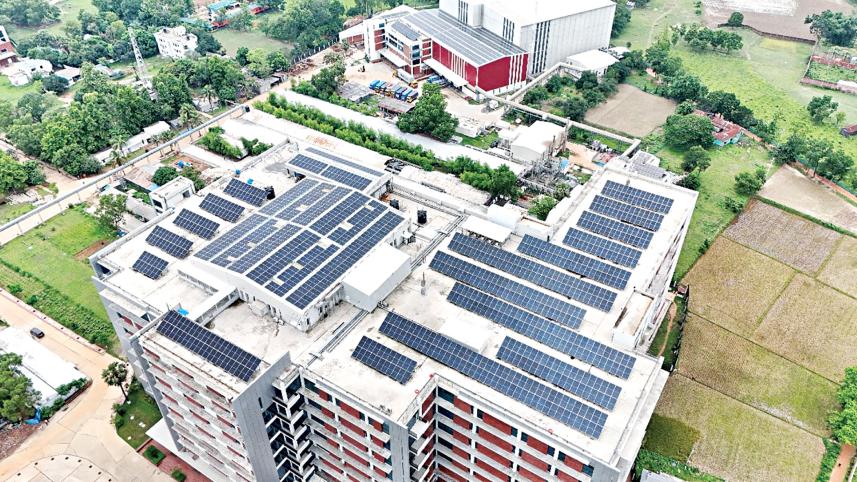‘Industrialise first, clean up later’ no longer suits developing nations

The old model of "industrialise first, clean up later," which once prioritised rapid growth over environmental concerns, no longer works for developing nations, according to economists and business leaders.
They said sustainability and responsible business practices are no longer simply ethical choices but essential elements of economic growth and competitiveness.
"Sustainability and competitiveness are increasingly becoming inseparable for modern businesses as the world faces deepening environmental and social challenges," said Owais Parray, country economic adviser at UNDP Bangladesh.
Speaking at "Sustainability Day 2025," organised by the UN Global Compact Network Bangladesh (UN GCNB) in Dhaka yesterday, Parray said, "We face many environmental concerns today, from the climate crisis to severe air pollution, not only in Bangladesh but across many other countries."
He said businesses are responding to these challenges, and as an economist, he has observed how they are also adapting to changing consumer demands.
"These shifts, in turn, reflect the evolution of our societal values," he added.
Drawing from history, Parray said, "Many years ago, during the First Industrial Revolution, it was quite common, even encouraged, for factories to hire young children. There were no questions asked."
"Today, while it sadly still exists in some places, it is largely unthinkable for most of us that children should work in factories."
The UNDP economist said that while laws have helped prevent such exploitation, the real change has come from a deeper moral transformation. "There has been a fundamental shift in our values."
According to Parray, ideas once considered fringe, such as social business, green finance, and creating value at the bottom of the pyramid, have now become mainstream — a positive shift over the past two decades.
He said innovation has been the driving force behind this transformation. And it is not just technological but also about ideas and business models. For instance, corporate social responsibility (CSR) was once seen merely as a cost, something done to build goodwill, said Parray, adding, "Now, it is increasingly viewed as an investment."
Rejecting the traditional development path of high-income industrialised countries, Parray said the old "industrialise first, clean up later" model no longer suits developing economies.
At the event, AK Azad, vice-president of the International Chamber of Commerce (ICC) Bangladesh, urged the country's business community to integrate sustainability and responsible practices into their core operations to remain competitive in a rapidly changing global trade landscape.
Azad, also the chairman of Ha-Meem Group, a leading readymade garment supplier, said that as Bangladesh prepares to graduate from least developed country (LDC) status, it faces both new opportunities and challenges. "We must enhance competitiveness, diversify exports, and embrace sustainability and innovation as the foundation of our next phase of growth," said the business leader.
He commented that state-led innovation in technology, green finance, and digital transformation could make industries more efficient and globally competitive.
Calling the event "not just a celebration but a call to action," Azad urged business leaders, policymakers, and civil society to work together so that sustainability becomes a shared national goal.
In his opening remarks, Farooq Sobhan, network representative at the UN Global Compact Network Bangladesh, highlighted the role of the private sector in integrating innovation into sustainability strategies.
He said the next phase of corporate growth will depend on how effectively businesses align their models with environmental and social priorities.
Among others, Commerce Secretary Mahbubur Rahman, Green Delta Insurance PLC Managing Director Farzanah Chowdhury, and Global Compact Network Bangladesh Executive Director Shahamin S Zaman spoke at the event.



 For all latest news, follow The Daily Star's Google News channel.
For all latest news, follow The Daily Star's Google News channel.